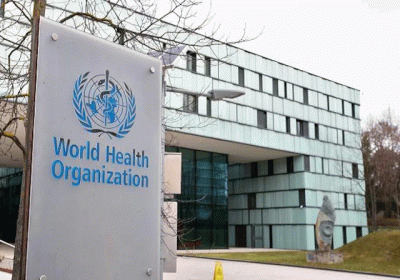Covid horror warning as Delta-Omicron HYBRID mutation identified: ‘The real thing’


Virologists from L’Institut Pasteur in Paris have sequenced the genome of a new "Deltacron" variant. It has reportedly been detected in several regions in France and is believed to have been circulating since early January. Earlier in the year, concern was raised after a lab in Cyprus claimed to have found evidence of a Delta-Omicron recombination event.
Experts later said the findings were false, but now they believe they have finally found a true example.
Aris Katzourakis, a professor of evolution and genomics at the University of Oxford said: "This one is legit."
A number of similar sequences have also reportedly been found in Denmark and the Netherlands, but have not been confirmed yet.
Dr Stephen Griffin, a virologist at the University of Leeds: “The French cluster appears to be a validated occurrence where a recombination event has given rise to a virus fit enough to circulate.
"Whilst it doesn’t seem to have taken off as a dominant strain yet, this could be due to a very slow start based upon seeding density (the number of initial cases).”
“There are multiple scenarios that can play out here in terms of what this means for people that become infected as this combination of viral proteins may behave differently to either parent.
To be clear, there is no data yet to show wether Deltacron is more infectious or deadly than its predecessors – Delta and Omicron.
Dr Griffin said the “fact it persists in the fact of Omicron” suggests its transmissibility “can’t be too shoddy”.
Maria van Kerkhove, the Covid technical lead for the World Health Organisation, said her team were “tracking and discussing” the new variant.
It comes as experts have warned the pandemic is "not over" as hospital admission rise steeply among those over 55.
About one in 35 people (2.88%) of people in England were infected between 8 February to 1 March, according to data.
The figure decreased from 4.41% in the period between 5 January and 20 January - but was also the second-highest recorded rate of cases since the study started in 2020.
Dr Jenny Harries, chief executive of the UK Health Security Agency (UKHSA), said: These data confirm that cases have declined substantially following the peak of the Omicron wave.
"However, the increasing presence of the BA.2 sub-lineage of Omicron and the recent slight increase in infections in those over 55 show that the pandemic is not over and that we can expect to see COVID circulating at high levels."
Prof Paul Elliott, director of the React study, said the rise was probably driven by factors including the lifting of restrictions last month.
Another line of investigation is thought to be the BA.2 form of Omicron, a relative of the original BA.1.






